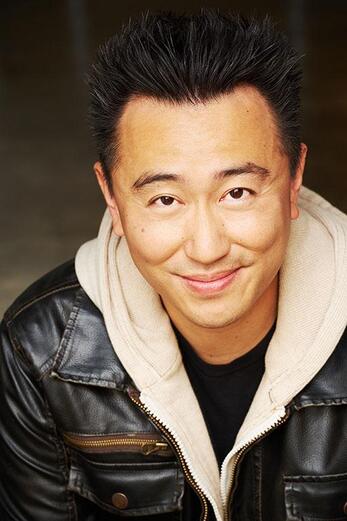
A writer/producer, WEIKO LIN has written projects for the Mark Gordon Company, Ivanhoe Pictures, Walt Disney Parks and Resorts, Don Mischer Productions, the Unison Company (Taiwan), and Wanda Pictures (China). Fluent in Mandarin, he produced and wrote the original story for the Chinese-language romance film, 100 DAYS, which released theatrically in Taiwan and premiered in Mainland China as an official selection of the 2014 Golden Rooster and Hundred Flowers Film Festival. For the screen, Weiko adapted RIVER TOWN, the New York Times Notable Book and bestselling memoir by Peter Hessler for Fugitive Films and acclaimed director Lu Chuan (City of Life and Death, Disney Nature’s Born in China). In television, he has written a pilot for Super Deluxe (former digital studio of Turner/Warner Media).
Recipient of a Samuel Goldwyn Writing Award, Weiko earned his MFA in Screenwriting from UCLA. He was also recognized as a finalist for the Academy of Motion Pictures Arts and Sciences Nicholl Fellowship in Screenwriting. A Fulbright Senior Specialist, Weiko has taught at institutions including UCLA, Northwestern University, and Taipei National University of the Arts. He is a tenured Associate Professor at Emerson College.
A member of Writers Guild of America West and Dramatist Guild of America, he is represented by Anonymous Content and United Talent Agency.
Order Weiko's book here, available July 1, 2019. (Chinese edition out in Mainland China in 2020).
See Weiko in L.A. and Boston at these upcoming author events.
Dave Watson: First, congratulations on a timely, and timeless and unique book. How did this come about?
Weiko Lin: Thanks so much! I met my publisher at a conference, and we chatted about the prospect of a book. In a way, screenwriting books are all talking more or less about the same thing. Just like how they say all the story plots and premises have already been done. But a screenwriting mentor of mine told us that "it hasn’t been done by you".
I love the analogy of cooking to screenwriting. With my Chinese heritage, food is everything. It’s a communal, bonding moment where we share stories. That was the original genesis for the book.
DW: You start the book with story origins and storytelling elements. Do you start with this as a writer?
WL: Yes, actually. Every concept that sparks the story for me, it’s always about the origin of the character and/or the world - in a sense, I start with the soul. The movie may not be about the origin per say - but that’s what excites me -whether it ends up as a backstory or may not even show up in the actual story. Whenever I watch or read a story, the great ones that stay with me are those I feel the soul breathing life into it.
DW: Your book bridges the gap between China and the U.S. and global markets. Is film marketing always global-minded?
WL: Bridging the gap is a tall order. I simply wanted to provide a short hand to provide perspectives from both sides to better understand the differences in narrative storytelling that are reflections of its cultures. With the world being more overtly disconnected today, global films are more important than ever. And by global I don’t mean only big commercial blockbusters. They also include smaller, independent films that can resonate with universal audiences. Sure, Hollywood marketing for tentpoles are globally minded. And with China being the second biggest box office in the world, that is often a consideration. However, in terms of US China co-productions, placing bigger priority on authentic development at the screenplay stage will get us closer in creating organic stories that can resonate globally.
DW: In your experience, are certain story elements universal? Some things everyone human being can identify with?
WL: Yes, absolutely. The element of family is universal. Everyone can relate to family - each culture gets more specific in family dynamics but all can relate. Ang Lee does it so well in his Oscar nominated best foreign language film EAT DRINK MAN WOMAN about a father and his three grown daughters. Off that, he went on to direct SENSE AND SENSIBILITY about English sisters.
Family is how the audience can buy-in no matter what the genre is. THE GODFATHER and SOPRANOS are great examples. Family dynamics are relatable.
DW: You also discuss making films and stories for mainland China. What are some key features for such a fast-changing country? (At least it seems that way, and having been there, I know how diverse the place is)
WL: It’s understanding the ever evolving modern Chinese audience rather than relying on generalization of Chinese culture. The growing audience are from 2nd, 3rd, and 4th tier cities — which means the protagonist’s journey might want to consider the modern audience’s perspective.
DW: What's next?
WL: I have optioned a Simon & Schuster memoir that I am in the process of connecting with the right partners to develop as a TV series and in midst of putting together a global movie that’s a true story for US/China co-production that have been an incredible passion project for me.
DW: What is your favorite cinematic moment?
WL: Near end of Rain Man, Charlie Babbitt does the selfless thing of letting his brother Raymond return to the institution where he can get proper help. He tells Raymond, “I like having you as my brother." Raymond responds by gently leaning his forehead on Charlie's. The shot itself is simple. But this moment brings tears to me every time because it was earned. Throughout the journey, Raymond never lets anyone touch him. And we wonder if this rekindled relationship throughout the entire journey with his brother has even made any impact. But the initiation of that subtle gesture captured the emotion of the entire movie. And it’s about family.
Clip: Rain Man
Founder and editor of Movies Matter, Dave Watson is a writer and educator in Madison, WI.

